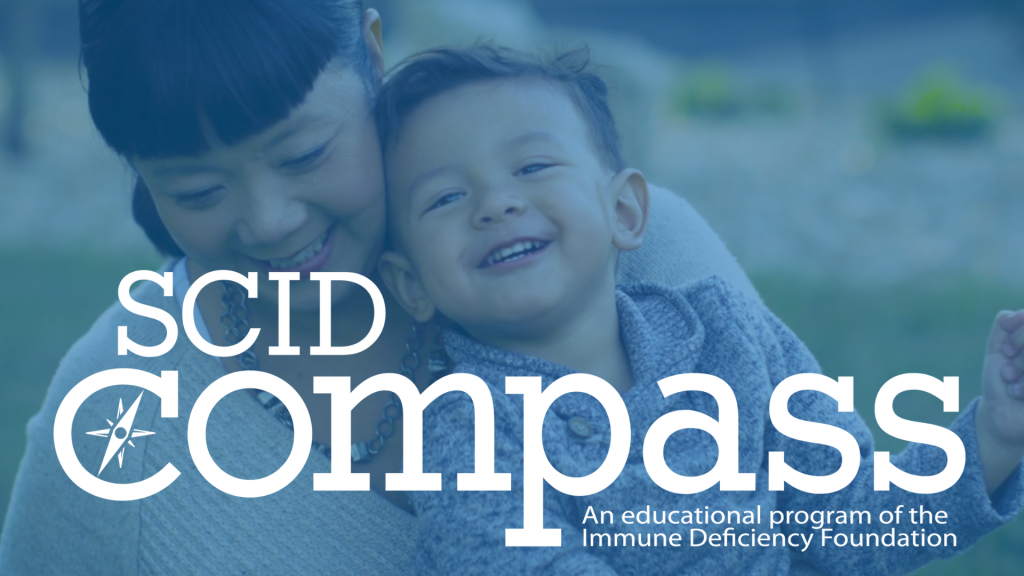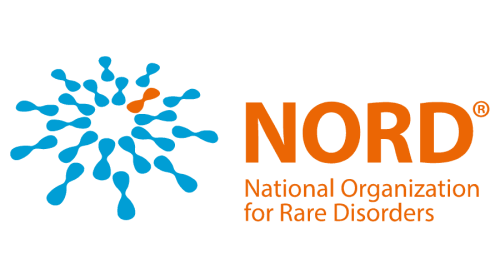Conditioning may be used to prepare your child's immune system to receive treatment.
Key Points
- Conditioning is used to make space in your child’s bone marrow for new stem cells and/or suppress your child’s immune system.
- The goal of conditioning is to reduce the chance of treatment complications and improve short and long-term health outcomes.
- Conditioning can have side effects and long-term risks.
- For some children with SCID, conditioning may not be appropriate. Your child’s need for conditioning may depend on several factors.
- There are many approaches to treatment and conditioning. There is not one ‘right’ way that leads to a successful outcome.
- Together, you and your child’s doctors should review the options available and decide whether to use conditioning.
What Is Conditioning?
Conditioning describes a pre-treatment that may be given to a child before a hematopoietic stem cell transplant (HSCT) or gene therapy. Conditioning means that your child may receive chemotherapy and/or other drugs to prepare your child to receive the new stem cells. The goal is to increase the chance of your child having a successful outcome.
Why Is Conditioning Sometimes Used?
The goal of conditioning is to lower the risk of possible treatment complications and improve your child’s short-term and long-term health outcomes. Conditioning may reduce the impact of these possible complications:
- Graft/transplant rejection: Your child’s immune system, even if it doesn’t work very well, might notice the new stem cells as different and kill them.
- Failure of new stem cells to engraft: The new stem cells might not find a place to land in your child’s marrow and, therefore, may not give rise to the different types of immune cells.
- New stem cells partially engraft: The new stem cells may engraft and start working to make T-cells with the help of the thymus, but fail to engraft in the bones, where B-cells are made. If this happens your child may still need lifelong immunoglobulin (IG) replacement therapy (i.e., frequent injections of plasma that contain antibodies to help fight infections), antibiotics, or other ongoing therapy to help the immune system.
What Are The Types Of Conditioning?
There are two major categories of conditioning: 1) conditioning drugs that target stem cells, and 2) conditioning drugs that target the immune cells. They have different goals. Children may have one or both types of conditioning before treatment.
Drugs that target stem cells
This type of conditioning uses chemotherapy drugs to reduce the number of stem cells in your child’s bone marrow. Doctors may call this “myelosuppression.” While this seems like a bad thing, the goal is to make space in your child’s bone marrow for the new stem cells to engraft. There are several intensities of myelosuppressive conditioning that could be used before transplant. They use the same drugs. The difference is the dose of drugs and how many drugs are used. The three categories of myelosuppressive conditioning include:
- Myeloablative conditioning (MAC): This type of conditioning uses a higher dose of chemotherapy drugs aimed at completely getting rid of your child’s stem cells. Successful MAC makes plenty of empty space in your child’s bone marrow for new stem cells to land and start to work. In general, MAC has the best chance to fully replace the bone marrow with new stem cells to achieve a fully functioning immune system that can fight off infections. However, this approach does not always work in every patient and comes with more severe side effects and higher risks.
- Reduced-intensity conditioning (RIC): This type of conditioning uses lower doses of chemotherapy drugs to achieve full replacement of your child’s stem cells but with less toxicity. Successful RIC makes enough empty space for donor stem cells to land and start to work. Use of RIC means less severe side effects and lower risks. But because RIC uses lower doses, there is a greater chance when compared with MAC that replacement of your child’s stem cells is incomplete. This means your child’s immune system might not be fully functioning after the transplant. For example, your child might still need lifelong IG treatment.
- Low-dose conditioning: This type of conditioning uses very low doses of chemotherapy drugs and is more commonly used in gene therapy.
Drugs that target immune cells
This type of conditioning uses drugs to reduce the T and B cells in your child’s immune system. Doctors may call this “immunosuppression.” While this seems like a bad thing, the goal is to protect the new stem cells from being attacked by your child’s immune cells. There are two categories of immunosuppressive drugs:
- Antibody-based drugs: Antibody-based drugs use antibodies to target the child’s immune cells to decrease risk of graft rejection. Examples include Alemtuzumab (CAMPATH), ATG (Anti-thymocyte globulin).
- Chemotherapy drugs: Chemotherapy drugs are used to kill immune cells, but not stem cells. Examples include Cyclophosphamide and Fludarabine.
What Are The Side Effects Of Conditioning?
Short-term side effects are temporary and subside when the treatment starts working. Long-term side effects may appear months or years after conditioning. In addition, some short-term side effects may become chronic and last a long time.
Short-Term Side Effects
Below are some possible short-term side effects of conditioning. These side effects may be mild to severe.
- The chemotherapy and/or other drugs used for conditioning may affect your child’s mouth, throat, and intestines.
- Your child could have sores on those areas which can lead to pain, drooling, nausea, vomiting, or diarrhea.
- Your child may have a harder time eating because of mouth sores, which could result in the need for a feeding tube.
- Conditioning will reduce the number of all your child’s blood cells for several weeks. This includes immune cells, red blood cells, and blood-clotting cells (platelets).
- When your child has a reduced number of immune cells, he/she is at an increased risk for infection.
- Your child may have blood clotting problems or become anemic, which is when your child feels tired and weak because of having fewer red blood cells.
- Your child’s vital organs, such as the brain, lungs, kidney, and liver, may be harmed. Sometimes these complications can be treated with medication.
Long-Term Side Effects
Below are some possible long-term side effects of conditioning. Any one of these complications is infrequent, but parents should know that sometimes they do occur.
- Chronic problems from harm to your child’s vital organs, such as the brain, lungs, kidney, and liver. Sometimes these complications can be treated with medication.
- Bone growth suppression, which may result in shortened stature as an adult
- Endocrine abnormalities such as growth hormone deficiency, hypothyroidism (underactive thyroid), ovarian and testicular dysfunction
- Reduced fertility
- Increased risk of cancer
- Developmental delay or problems with learning
- Issues with development and arrangement of teeth
- The vast majority of children with SCID survive conditioning and treatment, but there is a risk of life-threatening complications related to conditioning
What Are The Outcomes Of Treatment With Or Without Conditioning?
The most successful outcome is when your child has a fully functioning immune system that can fight off infections. For HSCT, doctors will measure your child’s level of chimerism to determine how well your child’s immune system is functioning. Chimerism is the percentage of healthy donor cells versus the child’s own cells. After transplant, the doctor will measure chimerism in your child’s blood as an indicator of how well your child’s cells have been replaced with the donor cells. After transplant, some children have 100% replacement of the blood and bone marrow with donor cells, which is called full donor chimerism. Mixed chimerism means that there is a mixture of the child’s cells and the donor’s cells. In general, the more donor cells are in the bone marrow, the better the child’s immune system works. In some cases, having low chimerism may mean that your child’s doctor may consider another transplant.
In the case of gene therapy, doctors test your child’s stem cells after they are treated with a vector to see how well the vector got incorporated into the cells. This test is called vector copy number (VCN). The VCN is the average number of copies of the vector in each cell. If the VCN is less than 1, for example 0.5, this means that, on average, there are 0.5 copies of the vector per cell. In other words, some cells have the vector while others do not. If the VCN is greater than 1, for example 2 or 3, this means that, on average, there are 2 or 3 copies of the vector per cell. Most gene therapies for SCID are currently being studied through clinical trials, and these studies set a goal for what the VCN should ideally be to improve the symptoms of the disease. To sustain your child’s immune system, your child’s VCN number should come close to the goal set by the study.
Conditioning may help achieve the right degree of chimerism or VCN.
Both survival and the chance for your child having a fully functioning immune system that can fight off infection depend on many factors based on your child's situation, including:
- How old your child is at the time of treatment
- What type of SCID your child has (genetic type)
- In HSCT, the type of donor match
- Whether your child has conditioning before treatment, and if so, what type
- Your child’s health before treatment
Talk to your doctor about your child’s possible outcomes after treatment. Your doctor’s experience and knowledge may allow him/her to give you information more targeted to your child.
How Do Doctors Decide Whether To Recommend Conditioning?
Treatment can be successful with and without conditioning. Treatment is very individualized to the needs of each child. There is not one specific "recipe" or standard. Each patient's personal risks and current medical condition should be evaluated by their doctor. Using this information, doctors will recommend whether conditioning is the best option or not.
In general, conditioning may be recommended when:
- The child has some immune function, such as those with leaky or atypical SCID
- The donor is not related to your child
- The child has certain types of SCID, such as ADA or RAG-1/RAG-2
In general, conditioning may NOT be recommended when:
- The donor is a fully matched sibling
- The child has an active infection
- The child is very young (under 2 months of age) or small (e.g., was born prematurely)
When conditioning is not used, the chances of a child achieving a fully functioning immune system are generally less. The child may need more treatment or have more infections. Some doctors plan for a staged approach. The doctor might do a transplant without conditioning at a young age, knowing that it is likely the child will need a second transplant down the road or lifelong IG replacement therapy.
How Are Parents Or Legal Guardians Involved In Choices About The Use Of Conditioning?
As parents or legal guardians of a child with SCID, you are the ultimate decision-makers about your child’s care. Talk to your child’s doctor about all available treatment options. Similarly, you and your child’s doctor should discuss the potential benefits and risks of conditioning.
Parents’ involvement in making a choice about using conditioning may vary. Some parents want to decide along with the doctor. Others want the doctors to make the decision about the use of conditioning given their expertise. A doctor may strongly recommend that conditioning be used or not used based on his or her best judgment and current research guidelines, the child’s specific situation, and sometimes the hospital’s standard practice.
If parents have concerns about their doctor’s approach, they may be able to get a second opinion from a different doctor. Personal considerations, like a family’s ability to travel, the child’s insurance coverage, and the urgency of the timing of the HSCT, could affect whether parents are able to seek a second opinion at another treatment center. If a family has such restrictions, they may still be able to have another SCID expert provide a consultation by phone or videoconference.
Questions To Ask Your Child’s Doctor
Below are some suggested questions you can discuss with your child’s doctor to determine if conditioning is the best choice.
If conditioning IS used:
- What side effects may be most problematic for my child?
- What are the risks of conditioning for my child?
- Long term, do the potential benefits of conditioning outweigh the potential risks?
- For my child, is conditioning the best choice?
If conditioning is NOT used:
- How likely is it that HSCT will lead to a fully functioning immune system for my child?
- What are the chances that my child will need another transplant later in life or lifelong IG treatment?
- How likely is it that my child’s body will reject the transplant?
Remember: There is no right or wrong approach. Transplants can be successful with and without conditioning. There are many factors that play a role in the decision-making about when to use conditioning. Although existing data supports general guidelines for when to use conditioning and when to avoid it, doctors and researchers do not yet have enough data to develop consensus guidance and standards of care.
Support For Parents
You may feel worried or frustrated when doctors cannot guarantee that using conditioning will lead to a more successful transplant for your child than not using conditioning, or vice versa. It is natural to be worried or frustrated. Families often say that going through a treatment when there is a lot of uncertainty is one of the hardest parts of their child’s journey with SCID.
Some parents manage uncertainties by reaching out to other SCID families to learn about their experiences with treatment. Parents often join social media groups, such as the SCID, Angels for Life Foundation on Facebook to connect to SCID families or to look for more information. Others lean on family and friends to deal with uncertainties.
Some parents decide to look for second opinions about their child’s treatment by reaching out to multiple doctors. Other families find that turning to social workers helps them to address their questions and uncertainties.
These are a few examples of the ways in which families deal with uncertainty in their SCID journey. You may pick a different strategy that works best for your family.
Remember: Conditioning may make a transplant more successful by increasing the chances of complete replacement of your child’s immune cells with donor cells. But on the other hand, use of conditioning comes with side effects and the potential for serious risks of its own. Together, you and your child’s doctors should review the options available and decide whether to use conditioning based on the balance of benefits and risks.


















